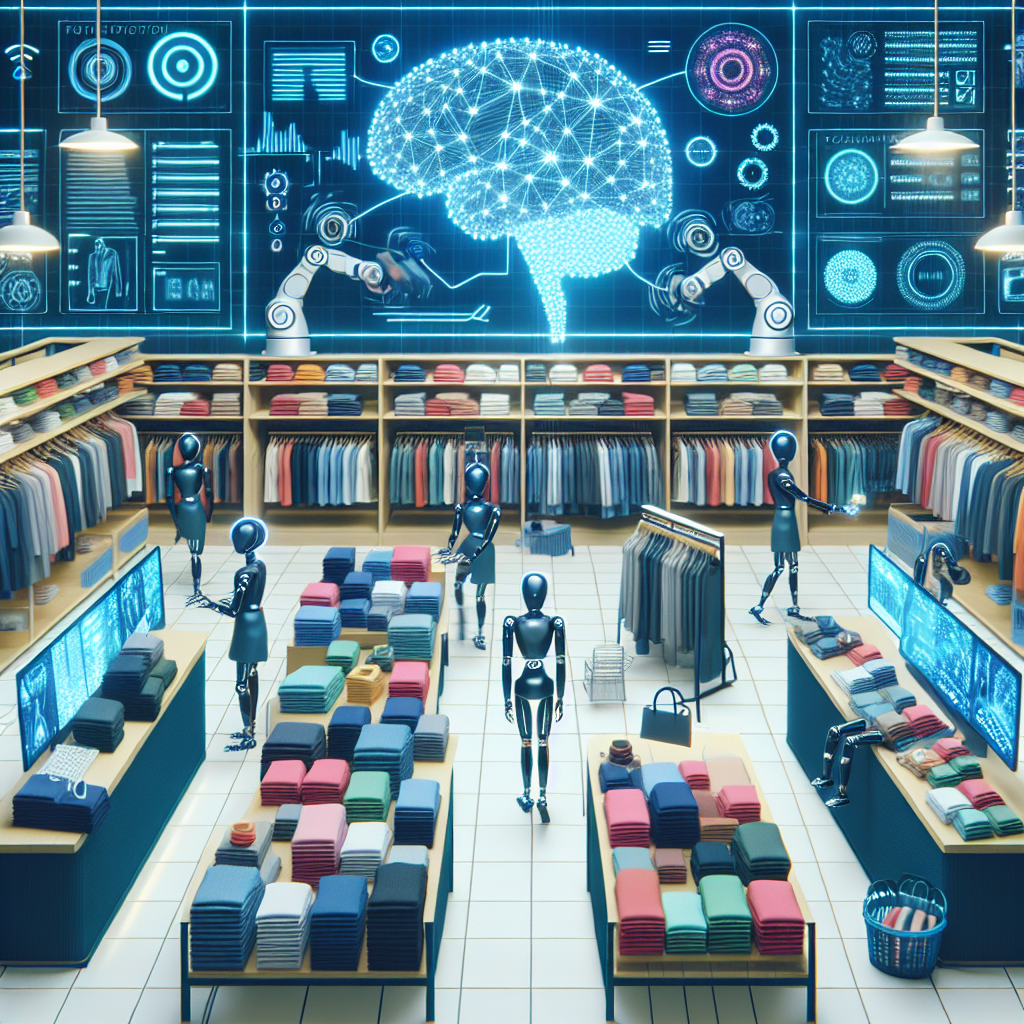The Future of AI in Fashion Retail Operations: Automation and Efficiency
Artificial intelligence (AI) is revolutionizing industries across the globe, and the fashion retail sector is no exception. With the rise of e-commerce and changing consumer behaviors, fashion retailers are looking to AI to streamline operations, improve efficiency, and enhance the overall customer experience. From personalized recommendations to inventory management, AI is transforming the way fashion retailers do business.
Automation in Fashion Retail
One of the key areas where AI is making a significant impact in fashion retail is through automation. By using machine learning algorithms, retailers can automate repetitive tasks such as data entry, inventory management, and customer service inquiries. This not only frees up employees to focus on more strategic tasks but also helps to reduce errors and improve overall efficiency.
For example, AI-powered chatbots can handle customer inquiries and provide personalized recommendations based on a customer’s preferences and past purchases. This not only improves the customer experience but also helps to drive sales and increase customer loyalty. In addition, AI can be used to automate the process of replenishing inventory, predicting demand, and optimizing pricing strategies.
Efficiency in Fashion Retail
AI is also helping fashion retailers to improve efficiency in a variety of ways. By analyzing large amounts of data, AI can help retailers to identify trends, forecast demand, and optimize their supply chain. This allows retailers to make more informed decisions and better meet the needs of their customers.
For example, AI can analyze customer data to identify buying patterns and preferences, allowing retailers to tailor their product offerings and marketing strategies accordingly. This not only helps to increase sales but also reduces waste by ensuring that the right products are in the right place at the right time.
AI can also be used to optimize pricing strategies by dynamically adjusting prices based on factors such as demand, competition, and inventory levels. This allows retailers to maximize profits while remaining competitive in a fast-paced market.
The Role of AI in Personalization
One of the key benefits of AI in fashion retail is its ability to personalize the shopping experience for customers. By analyzing customer data, AI can provide personalized recommendations, offers, and content that are tailored to each individual’s preferences and behaviors.
For example, AI can analyze a customer’s browsing history, purchase history, and social media activity to provide personalized product recommendations. This not only helps to increase sales but also enhances the overall customer experience by making shopping easier and more enjoyable.
In addition, AI can be used to personalize marketing campaigns by targeting customers with relevant content and offers. This helps to improve engagement and drive conversions by delivering the right message to the right person at the right time.
FAQs
Q: How will AI impact the future of fashion retail operations?
A: AI will revolutionize fashion retail operations by automating tasks, improving efficiency, and personalizing the customer experience. From inventory management to pricing strategies, AI will help retailers to make more informed decisions and better meet the needs of their customers.
Q: Will AI replace human workers in fashion retail?
A: While AI will automate some tasks in fashion retail, it is unlikely to replace human workers entirely. Instead, AI will augment human capabilities by handling repetitive tasks and providing data-driven insights that can help employees make more informed decisions.
Q: How can small fashion retailers benefit from AI?
A: Small fashion retailers can benefit from AI by using off-the-shelf AI solutions that are affordable and easy to implement. By automating tasks such as inventory management and customer service, small retailers can improve efficiency and compete with larger competitors.
Q: What are the ethical implications of AI in fashion retail?
A: As with any technology, AI in fashion retail raises ethical concerns around data privacy, algorithm bias, and job displacement. Retailers must ensure that AI is used responsibly and transparently to protect customer data and minimize any negative impact on employees.
In conclusion, the future of AI in fashion retail is bright, with automation and efficiency driving innovation and improving the overall customer experience. By leveraging AI to automate tasks, optimize operations, and personalize the shopping experience, fashion retailers can stay ahead of the competition and meet the evolving needs of their customers.

